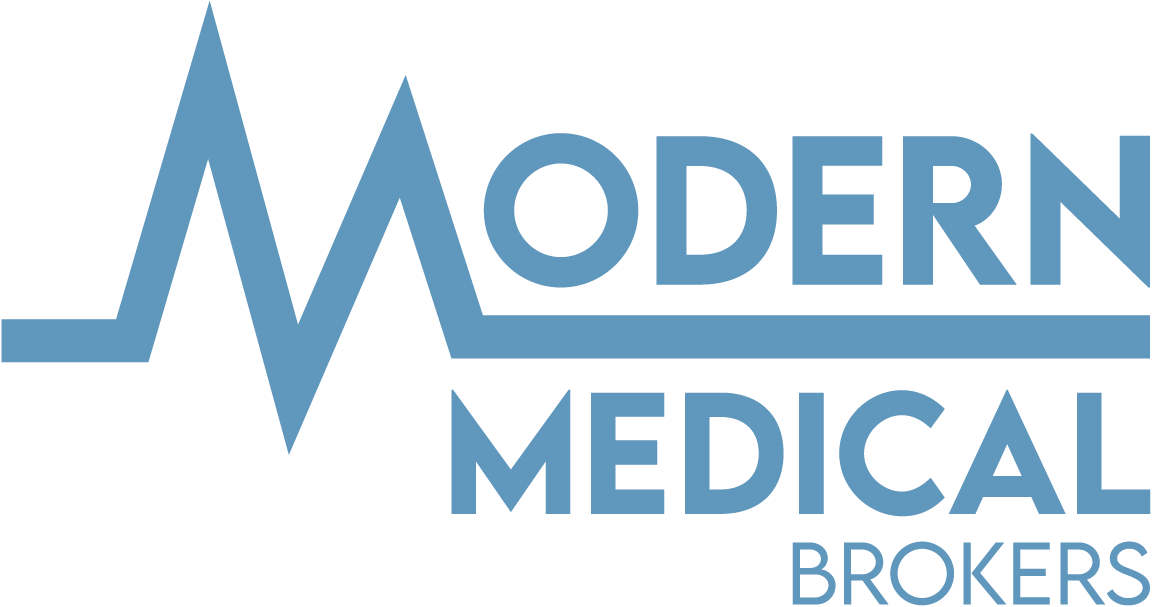11 Key Questions You Should Ask When Buying a Medical Practice

Take Advantage of Help with Purchasing a Medical Practice Nationwide
Modern Medical Brokers is your trusted ally when buying a medical practice in the United States. Are you a practicing physician looking for your next venture in your passion for healthcare? Our professionals help you know what to consider when taking this big step in your career and how to do so efficiently. We’ll look at factors such as the economy, partnerships, and how you can achieve the best on your investment. No physician should walk through this process blindly or alone. Contact us today for questions or to schedule a consultation. Keep reading below to learn how we can best help you.

Know the Questions to Ask When Buying a Medical Practice
Have you found a listing for a medical facility you hope to purchase? Before you make any sudden decisions, you should consider a few factors. It’s never wise to rush into a significant buy without knowing what background information to request. Here is a list of questions we are going to walk through in the sections below, along with their respective answers:
- Why is the Seller selling?
- How long of a transition is the Seller willing to offer post-sale?
- What is the insurance concept of the practice (commercial, Medicare, Medicaid, self-pay)?
- How many Medicare (Medicare Part B, Medicare Advantage) lives do you have?
- How many active patients are a part of the practice (unique patients seen in the past 24 months)?
- Is the Seller willing to share in the Buyer’s risk?
- What are the gross collections and Seller’s discretionary earnings during the past three years?
- What assets are included in the sale?
- What employment contracts are currently in place? Will the staff likely remain with the new owner?
- What restrictive covenants will the Buyer receive from the Seller?
- Is the Seller willing to sign a non-compete and non-solicitation?
Why Is the Seller Selling?
Understanding why the Seller is selling will allow you to discern firsthand if you should move forward with finding out more information on the listing. Some sellers may be retiring, while others are looking for a larger building or freshly new location to offer services. Most of the time, the situation is based on personal needs. However, that’s not always the case.
How Long of a Transition Is the Seller Willing to Offer Post-Sale?
In an ideal scenario, the Seller will agree on a transition period to ensure the purchase is successfully processed on both sides. This will ensure you both have a smooth and thorough transaction with no hidden agendas or problems. If no period of time is offered, be sure to ask what that could look like out of your best interest and that of the Seller.
What Is the Insurance Mix of the Practice?
Knowing the insurance mix (commercial, Medicare, Medicaid, self-pay) of the Seller’s business will allow you to know a few things. It’ll help you to know how many patients were generally a part of the practice. This understanding will also allow you to know the amount of revenue from each insurance plan offered. You don’t want to grow dependent on one sole plan, so knowing ahead of time how the previous business worked will help you with your own.
How Many Medicare Lives Do You Have?
If you treat elderly patients in your practice, including those with chronic medical conditions, you can receive performance-based bonuses. These come from shared saving plans and can be paid generously. Most of this derives from conducting patients’ annual wellness appointments and reporting. By actively participating in these programs, you enhance the quality of care provided and contribute to overall healthcare savings. Maintaining a focus on preventative care leads to improved patient outcomes, fostering stronger relationships with your patients and their families.
How Many Active Patients Are in the Practice?
When you compare the number of active patients in the Seller’s practice with their financial statements, you’ll know how many you need to keep a steady business. Consider asking what number of patients are seen directly by the practice’s owner. In any healthcare practice transition, a percentage of patients will be lost. If the owner treated most of those individuals, there could be an increase in loss.
Is the Seller Willing to Share in the Buyer’s Risk?
This is a crucial aspect of the negotiation process, as a seller’s willingness to participate in the risk can significantly influence the transaction’s structure. Sellers who are invested in the ongoing success of their practice may be open to offering transitional support, such as extended training or retaining a partial ownership stake, which can help mitigate risks for the Buyer. Including seller financing options could also align the Seller’s interests with the Buyer’s success, fostering a partnership that ensures both parties benefit from the practice’s continued growth.

What Are the Seller’s Earnings in the Past Three Years?
You should be able to access a three-year minimum of the Seller’s tax returns and profit and loss statements. This will allow you to understand the practice’s worth and financial trends. By reviewing the books, you can see how you could grow the business or how it could be affected by other matters. Additionally, examining these documents can reveal seasonal fluctuations in revenue, which may inform your planning and strategic decisions. Understanding the practice’s financial health is crucial for valuation and identifying potential areas for improvement and investment.
What Assets Are Included in the Sale?
When evaluating the purchase of a medical practice, it is essential to clarify what assets are included in the sale. Generally, a purchase agreement may encompass tangible assets such as medical equipment, furniture, and office supplies, as well as intangible assets like patient records and goodwill associated with the practice. However, prospective buyers should know that certain significant assets may not be included in the transaction. For instance, working capital—funds necessary for day-to-day operations—might remain with the Seller. Similarly, accounts receivable, which represent amounts owed by patients or insurers, can also be a point of contention and may require separate negotiation. Anything not included in the sale, you’ll have to consider as outside expenses that’ll need to be covered.
What Current Employment Contracts Are in Place?
Keeping current staff members is critical to maintaining business continuity from the Seller to you as the Buyer. Be sure to ask if current employees are under contract and whether they are guaranteed to stay with the practice. This could be for a long-term agreement or at least during the transitional period. Overall, if the staff is competent and has positive relationships with any remaining patients, this will keep the flow of operations with some familiarity. Additionally, retaining experienced employees can reduce training costs and minimize disruptions, allowing for a smoother transition. Fostering an open dialogue with the staff during this process can strengthen their commitment and alleviate any concerns they may have about changes in ownership.
What Restrictive Covenants Will the Buyer Receive From the Seller?
You should pay close attention to the restrictive covenants the Seller may agree to as part of the transaction. These covenants are typically clauses in the purchase agreement that limit the Seller’s activities post-sale, primarily designed to protect the Buyer’s investment. Common restrictive covenants include non-compete clauses, which prevent the Seller from establishing a competing practice within a specified geographic area and time frame. They also include non-solicitation agreements, which restrict the Seller from soliciting patients or employees of the practice for a designated period. Lastly, confidentiality agreements ensure that sensitive information about the practice remains confidential after the sale. Securing these covenants can foster a stable environment for the practice’s growth and protect its patient base.
Is the Seller Willing to Sign an Agreement for Non-Compete & Non-Solicitation?
When selling a medical practice, the Seller must be open to signing a non-compete and non-solicitation agreement with the Buyer. This protects the Buyer’s investment and ensures a smooth transition for patients and staff. By committing to these agreements, the Seller agrees not to establish a competing practice within a specified geographic area and timeframe, thereby protecting the Buyer’s clientele and market share. Furthermore, a non-solicitation clause prevents the Seller from co-opting the practice’s patients or employees, which fosters goodwill and trust between both parties. Ultimately, these measures contribute to the long-term success of the practice post-sale and encourage a more favorable relationship during the transition period.
Request a Consultation Appointment Today
Purchasing a medical practice is a significant decision that requires careful consideration and thorough evaluation. You should take the time to assess financial health, practice culture, and growth potential, weighing the risks and benefits of different negotiation strategies. We encourage you to partner with us at Modern Medical Brokers to understand best how to buy a medical practice. Engaging in open discussions about risk-sharing can protect your investment and foster a collaborative environment for both parties during the transition. By being diligent and informed, you can navigate the complexities of this process effectively, ensuring that your investment yields long-term satisfaction and success in your new practice. Contact us today to schedule your consultation.
